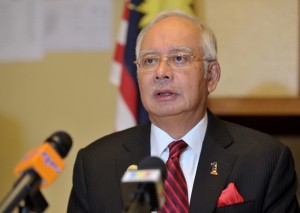Malaysia’s retirement scheme ranked third in Asia
Malaysia’s retirement system has been ranked third in Asia and 23rd globally despite a slight decrease in the country’s overall index value from 60.1 in 2020 to 59.6 in 2021, the 13th annual Mercer CFA Institute Global Pension Index (MCGPI) revealed. The study of 43 retirement income systems across the globe measures each retirement system through three weighted sub-indices (adequacy, sustainability and integrity). Of the three sub-indices measured in the 2021 Global Pension Index, Malaysia saw an improvement in its adequacy score to 50.6 this year. The country scored highest for integrity (76.8), followed by sustainability (57.5) and adequacy. Malaysia went from a C+ rating to a C grade this year, connoting a pension system that has some good features, but also major risks or shortcomings that should be addressed. Globally, Iceland’s retirement income system (84.2) has been named the world’s best in its debut, closely followed by the Netherlands (83.5) and Denmark (82). (The Star)

Covid-19 infection in Malaysia showing downward trend, says Dr Noor Hisham
The number of cases, fatalities, bed usage and use of intensive care units for Covid-19 patients reported daily continued to show a downward trend in the 41st epidemiological week (ME), said Health director-general Tan Sri Dr Noor Hisham Abdullah. He said this was in line with the increased coverage of Covid-19 vaccination in Malaysia besides efforts to reopen various sectors systematically through more convincing safe reopening initiatives. “During that period, new Covid-19 cases showed a 17.9% decrease. The average for active cases dropped 21% while death cases decreased by 15.3%,” he said. Detailed information on the current Covid-19 situation in Malaysia will be uploaded on the Covidnow website via https://covidnow.moh.gov.my and data will be updated at midnight every day. (Malay Mail)
CIDB hopes for allocation to increase technology adoption in construction sector
The Construction Industry Development Board (CIDB) hopes the government can provide incentives for programmes that can increase the adoption of technology in the construction sector for Budget 2022. CIDB Malaysia chief executive Datuk Ahmad Asri Abdul Hamid said several key programmes had been formulated by CIDB for implementation during the 12th Malaysia Plan (12MP) including the Industrial Building Systems (IBS) Excellence Programme, which involved the construction of an IBS hub in seven states in Malaysia. According to Ahmad Asri, allocation is also needed for the Construction 4.0 Transformation Programme. He said the two programmes are expected to be implemented within four years starting from 2022. “Allocation is also needed to carry out training related to management and safety assessment at construction sites. Such training is critical to improving the quality and safety of construction work,” he said. (The Sun Daily)
Southeast Asia’s young population driving property market recovery after pandemic
Property markets in Southeast Asia, one of the worst-hit by the Covid-19 pandemic, are poised to recover as countries across the world gradually open up in the coming months, according to analysts and investors. Much of that recovery will be driven by the region’s young population, they said. Office rents across Southeast Asia declined between 8% and 10% in the first quarter, while luxury home prices remained flat, according to Knight Frank. “With the damage wreaked by the pandemic, Southeast Asia, apart from Singapore, for now might not look too pretty as an investment destination,” said Christine Li, head of research for Asia-Pacific at Knight Frank. “However, its young population, sustained urbanisation rate and growing middle class are long-term fundamentals that will outlive the pandemic.” “Southeast Asia will play an increasingly important role going forward in many companies’ China-plus-one strategy for manufacturing and production,” said Henry Chin, head of Asia-Pacific research at CBRE. “The region’s geographical proximity to China also makes it compelling to Chinese companies, state-owned enterprises and developers in advancing China’s Belt and Road Initiative in Southeast Asia through infrastructure and property developments,” he added. (SCMP)
More younger people writing wills than before, says Rockwills
More younger people, aged between 30 and 40, are writing their own wills now, compared to the average 60 and above, says Rockwills Corp Sdn Bhd senior estate planner Chong Mok Yong. “The will writing is a sunrise industry and a big market to tap into,” Chong said. “The recent Covid-19 pandemic has also helped the public to realise that life is unexpected,” he said, adding that statistically more than 50% of clients ranging between the ages of 30 and 40, in comparison to above 60 years old before. He believes that ideally, writing a will is important as it will also cover the estate you buy or sell in the future. It also helps with an individual’s asset planning. “Even if they don’t have assets, they can still write a will, especially if they are married to protect the dependent or kids.” Without a will, the assets one leaves behind will be distributed among family members according to the Distribution Act 1958. (The Malaysian Reserve)





